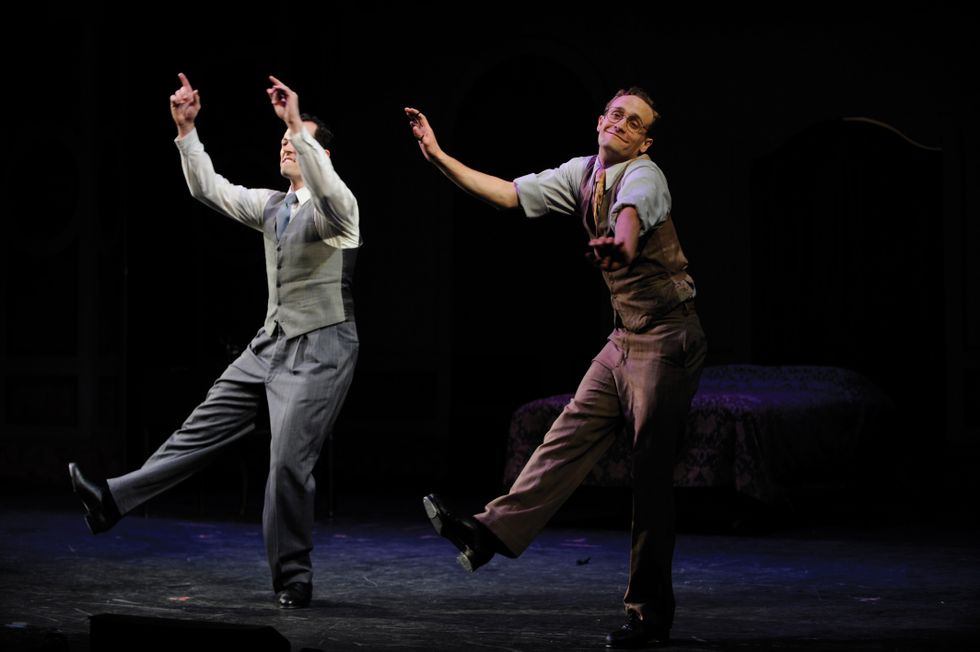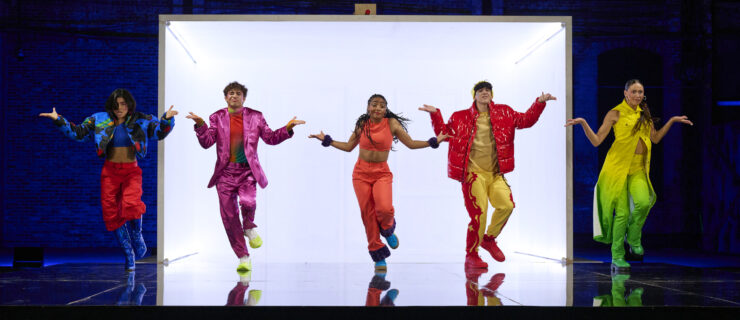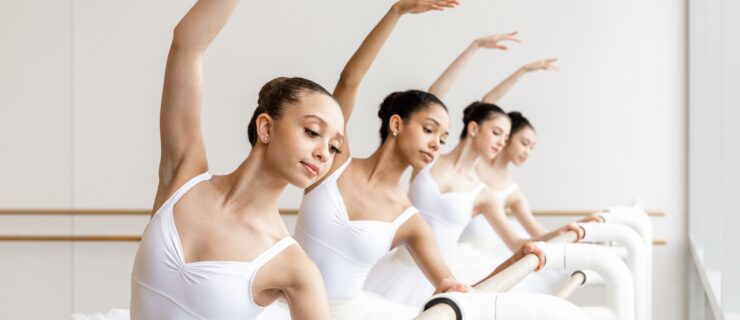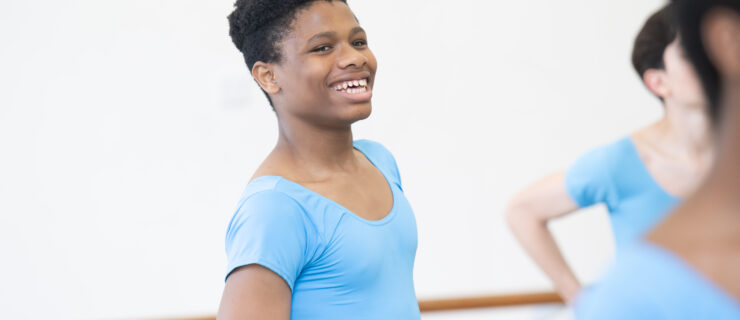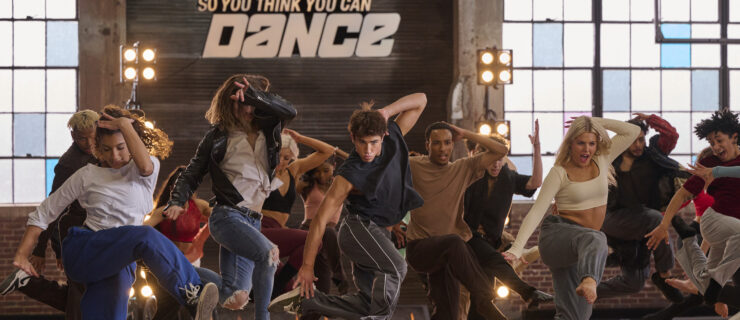Tapportunities
“When I was a little girl, I wasn’t a ballerina,” Mara Davi remembers. “But I could tap. I wanted to dance like they did in old Hollywood musicals.” So Davi made it happen: The Broadway veteran has starred in tap-heavy shows including White Christmas.
The same was true for Lori Barber, who wanted to be a precision tapper. “There was a picture of a Rockette in my childhood dance studio,” she says. “She was so glamorous, and I wanted to be like her.” Barber spent years honing her dance and tap skills in the studio, which paid off when she nailed the tap portion of her Radio City Rockette audition. Now, Barber is in her seventh year with the high-kickers.
But finding tap jobs isn’t always easy. There aren’t nearly as many big-name tap companies as there are ballet and modern troupes, which offer dancers yearly contracts and a sense of stability. Successful tappers will have passion and determination as well as discipline and a strong entrepreneurial spirit. If your heart is tied to tap, it is possible to make a living out of stomping, shuffling and time stepping. DS talked to working pros to get the scoop on the tap scene.
Keep Learning
If you want to make it big, get to class! A strong traditional tap vocabulary is a must. “I can do pullbacks, maxi fords, steps turning—everything down to original 42nd Street choreography,” says Mike Schulster, a teacher at NYC’s Broadway Dance Center and creator of the tap rock show Revolution. “Before I started doing rhythm tap, I learned show tap. Having that base is an important start for any style tapper.”
Once you’ve got a grip on your technical foundation, introduce yourself to new styles and teachers. “The more you take from different teachers, the more knowledgeable you are,” says Diana Brooks, assistant professor of dance at Oklahoma City University. “Take from everyone possible. You’ll be more employable.”
Network It Out
There aren’t a lot of tap auditions out there, so you have to think of social or class situations as opportunities to make connections. You may meet a future coworker at a party, jam, festival or in class.
Schulster started studying with Barbara Duffy at age 12. “Because I was ever-present and a hard worker, Barbara asked me to substitute teach for her when I was 18,” he says. “Now, I’ve done the same thing for a student of mine.”
And once you’ve nabbed a job, don’t think your work is done. You can continue to network on the job. Schulster met Irish dancer Joel Hanna while on tour with Fire of Dance. Their ideas were the genesis of Revolution. And Danny Gardner, a member of the New York Tap Ensemble, says a friend he met doing White Christmas in Texas led him to working with Parallel Exit, a physical comedy and tap troupe. “Be friendly and maintain good relationships,” says Claudia Rahardjanoto, a teacher and member of Barbara Duffy & Company. “You never know who might recommend you for a job down the line.”
Jam Time!
Jams are a central melting pot for tappers, a welcoming place where you can show off your chops, be challenged by peers and connect with the tap community. “There’s a host who invites people to dance as soloists or in duets/trios,” Schulster says. “At the end everyone takes turns dancing eight counts of their best stuff.” Use this time to carve out your own style. “You have to be proactive in the tap world, and jams are a great way to get out there,” Gardner says.
Break Out
Can’t find what you’re looking for? Create your own opportunity. “When I was coming up, there weren’t shows that had really advanced tapping in them,” Schulster says. “I wanted to put my own style into a piece that would showcase what I could do. That’s how Revolution started.” So slip on your shoes and start your own revolution!
Take it Outside of Tap
Adding skills like playing an instrument can help hone your musicality. “I’ve been playing piano since I was three and it’s been invaluable,” says Claudia Rahardjanoto, a member of Barbara Duffy & Company. “Understanding musical phrases and structures makes working with musicians so much easier.”
So…What Tap Jobs
Are There?
As a tapper, you’re not limited to choosing between the Rockettes and a Broadway show. Here are a handful of other opportunities:
-
Performing at tap festivals.
These are often one-night performance engagements, such as benefits, concerts and special events. -
Touring tap companies
(such as Revolution) -
TV specials or films
(tap twins Martin and Facundo Lombard used their unique tapping style to get booked as dancers in Step Up 3D!) - Industrials
- Teaching at conventions
-
Create your own opportunities!
Sisters Maud and Chloe Arnold developed their own company, Chloe & Maud Productions, which produces the D.C. Tap Festival, Chloe’s Tap Couture clothing line, their instructional and workout DVDs and several other ventures.
Make It Happen
You’ve laid the groundwork for a tap career—but how do you actually make money in the industry? Maud Arnold, tapper extraordinaire and former DS cover girl, works from 9:30 am until 1 am every day to keep her tap career on track. Here’s her advice:
Be visible.
People have to see you in order to hire you. Go to classes, jams and every audition available.
Learn to teach tap.
Being able to teach all ages and levels makes you employable when festivals and studios need to hire instructors.
Hit the streets.
If you live in a major city, go to a park or subway station with your shoes and a tap board. You can make some money and practice at the same time.
Hire a manager.
It’ll cost you money, but a manager will help find you jobs and get your name out.
Find what makes you unique.
Think of an innovative way to present yourself. Magnify your differences. What makes you cool?
